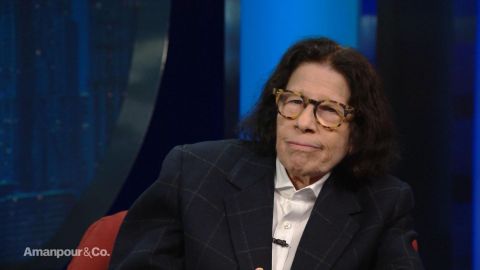Read Transcript EXPAND
CHRISTIANE AMANPOUR: So, we heard a little bit at the top of the program, we played a little snippet of a soundbite of Senator Warren congratulating Senator Klobuchar. Female solidarity. But let’s drill down into the question that we ask, can America, will America elect a woman?
REBECCA TRAISTER, AUTHOR, “GOOD AND MAD”: As somebody who has written about women in presidential politics for a long time and covered both of Hillary Clinton’s campaigns, what I saw happening this summer as Warren support was building was fascinating to me because it was so different from the paths that Hillary Clinton had taken, right. And we have a very small sample size in the United States of women who have been plausible contenders for even a major party nomination for the presidency. And what Warren was doing was fascinating. She was using language that was ferocious, angry, fierce, without it being necessarily gendered, but I’ve written a lot about women and anger. It’s very unusual to see female politicians get out there and talk about fighting and how angry they are. And Warren had been doing that consistently, sort of coming out of the Brett Kavanaugh confirmation of the Supreme Court, she had said, I am not afraid to say I’m angry. That was one interesting thing and it was something that Hillary Clinton had had a hard time doing in 2016 in a way that was absorbed, in another election where anger was a driving force for both Donald Trump and Bernie Sanders. Hillary Clinton had a hard time conveying anger. Warren was doing it effectively and consistently. She also — Hillary had tried a couple of different things. In 2008, she had downplayed her gender completely, not really talked about herself as a historic figure. In 2016 she played it up much more rigorously. She talked about the gender card and talked about making history. That — neither of those approaches really gelled for her. And Warren had to figure out how to thread the needle between the two. And she did an amazing thing in this period in the spring and summer, which was tell a story about change in the United States in which women, but not herself, women were the drivers of change. So, she opened her campaign at the Lawrence Textile Mills in Massachusetts where young women had formed one of the first labor unions in the country.
About This Episode EXPAND
New York Magazine writer Rebecca Traister speaks to Christiane about Elizabeth Warren, Amy Klobuchar and the power of women’s anger. Nobel Prize-winning economist Esther Duflo debunks several economic theories and discusses the role of women in the her field. Writer and social commentator Fran Lebowitz sits down with Walter Isaacson to give her take on 2020’s swirling political current.
LEARN MORE


